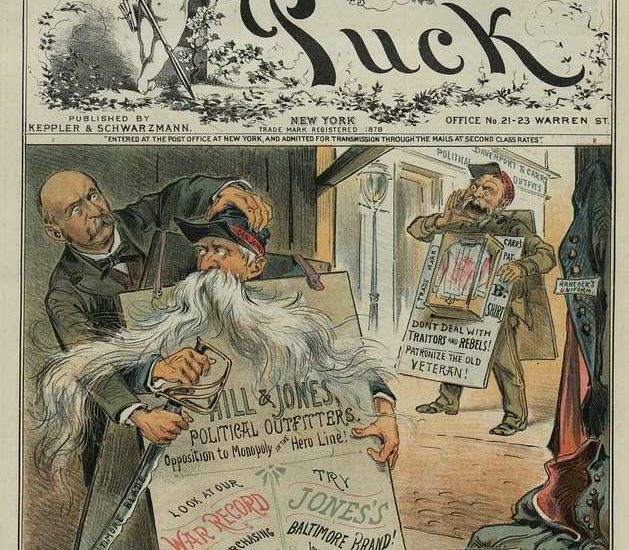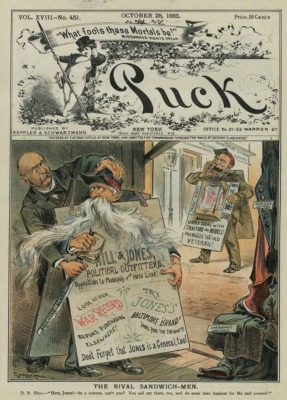- August 24, 2022
- Posted by: David Marshall
- Category: Business, Manufacturing

Manufacturers have one of the easiest-but-most-difficult times marketing their products, especially in the B2B realm. They have a small, defined audience, which makes their buyers easy to identify and reach.
On the downside, having a small, defined audience — generally, purchasing agents or directors of operation/COOs of other companies — means that traditional marketing methods either don’t work or they can be fairly expensive.
For example, as a manufacturer, you wouldn’t advertise on TV in the hopes of reaching your buyers. Since your audience can be measured in the hundreds or thousands, TV advertising will be a waste of money because 99.9% of viewers are not your buyers.
 Advertising in a trade magazine can cost several thousand dollars for a full-page ad but is only effective if a ready-to-buy buyer happens to see that ad at that moment. Non-buyers will ignore it, and your “ready-to” buyers are likely to miss it.
Advertising in a trade magazine can cost several thousand dollars for a full-page ad but is only effective if a ready-to-buy buyer happens to see that ad at that moment. Non-buyers will ignore it, and your “ready-to” buyers are likely to miss it.
Exhibiting at trade shows can easily cost you $10,000 for one trip (on the low side). Plus, you may not realize your ROI for a year or more: the relationships you start this year may not pay off for a few more years.
This is where social media marketing and content marketing can make a difference. You can reach a targeted audience for a fraction of the price of trade advertising and trade shows. Plus, you won’t be seen as an interruption of your customers’ time and attention, like regular broadcast advertising, or someone to avoid.
Here are five tactics manufacturers can use to reach their target audience without spending thousands of dollars each month to achieve it.
- Start a blog. Blogging does two things for manufacturers: 1) It boosts your search engine ranking, and 2) it makes you look like experts in your field. You can write blog posts to answer customers’ questions, which will answer those same questions for future website visitors a few years later. If people have asked that question in the past, other people will have it too. Instead of answering it over and over, answer it once and let that information continue to work for you.
- Use LinkedIn. Even if you don’t like social media, LinkedIn is an important sales and marketing tool and one that’s worthy of your time. You’ve no doubt heard the adage people buy from people they like and trust. You can build those relationships without sitting down face-to-face by having conversations and discussions on LinkedIn. Think of it as Facebook for business. People post news articles, ask questions, and share information. You can do the same thing, sharing your expertise and knowledge, but you can also help other people find their own answers to their questions. You could spend just 30 minutes a day using LinkedIn, and that can help you keep in contact with prospects who might otherwise need a one-hour visit every month.
- Participate in LinkedIn groups. There are groups on LinkedIn for every industry, every field, and nearly every job. There are groups for foundry manufacturers, groups for operations directors, and groups for city infrastructure managers. As a manufacturer, you have some expertise to contribute to any groups related to your work. Just by participating in these groups, you can not only establish your credibility, you can pick up some new customers.
- Create listening posts. Your customers and their employees will often talk about their business and their industry online which can give you valuable insights into their problems and their functions. For example, if your contact at one of your medium-sized customers were to leave for a new job, you would want to know that, wouldn’t you? You can set up a listening post on LinkedIn and Google News Alerts and find out about that new job announcement when it happens. For example, turn on the Mentioned In The News feature on LinkedIn. Whenever any of your connections are mentioned in any of the news services, including trade journals, you’ll receive an email about that person. Those stories could be about an interview, an article they wrote, or the fact that they’re leaving for a new job. You can also set up Google Alerts for your competitors: Just save your competitors’ names on your Alerts page and receive emails about any online mentions of them.
- Hire a professional. For small manufacturers, there tends to be a do-it-yourself attitude about marketing. Many manufacturers become marketers by default because they know their industry and how to reach it. As they grow, they hire salespeople who have to become marketers themselves. Many B2B manufacturers grow this way and rely on past relationships to keep the sales coming and the lines running. You’re better off working with a professional marketer to spread the word. For example, hire a blogger or a social media manager to promote your company, which leaves you free to focus on production, finances, hiring, facilities, and operations. Marketing is usually the job that gets the short shrift anyway in small operations, but you’re never going to grow if it’s always the last thing you do on any given day. A professional marketer can help you identify new markets, new customers, and new opportunities.
Marketing is a boon to manufacturers and can mean the difference between failure and success. Without marketing, your best hope is to get lucky and catch a big break, but you’re more likely to fail completely, or at least stagnate and never actually grow. You can avoid all that by embracing social media marketing and content marketing and getting your message right in front of your competition.
I’ve been a manufacturing executive, as well as a sales and marketing professional, for a few decades. Now I help companies turn around their own business, including pivoting within their industry. If you would like more information, please visit my website and connect with me on Twitter, Facebook, or LinkedIn.
Photo credit: Puck Magazine (Library of Congress, Public Domain)

